Regulation of International Financial Markets and International Banking
This research group analyses causes and consequences of banks' international activities and the regulatory framework they operate in.
Internationally active banks can facilitate an efficient international allocation of capital and provide channels for international risk sharing. But they can also be a source of financial instabilities themselves, thus contributing to international contagion and risk-shifting. This is one reason for the current re-regulation of international banking.
The research group contributes to the literature in three ways. First, the group empirically analyses the channels through which shocks are transmitted by internationally active banks. Second, the group analyses the build-up of aggregate imbalances in integrated banking markets and resulting consequences for the real economy. Third, the group analyses the impact of changes in banking supervision and regulation on (inter)national activities of banks, with a special focus on the European integration process.
IWH Data Project: International Banking Library
Research Cluster
Economic Dynamics and StabilityYour contact

Mitglied - Department Financial Markets
EXTERNAL FUNDING
07.2017 ‐ 12.2022
The Political Economy of the European Banking Union
European Social Fund (ESF)
Causes of national differences in the implementation of the Banking Union and the resulting impact on financial stability.
01.2015 ‐ 12.2017
Dynamic Interactions between Banks and the Real Economy
German Research Foundation (DFG)
Refereed Publications
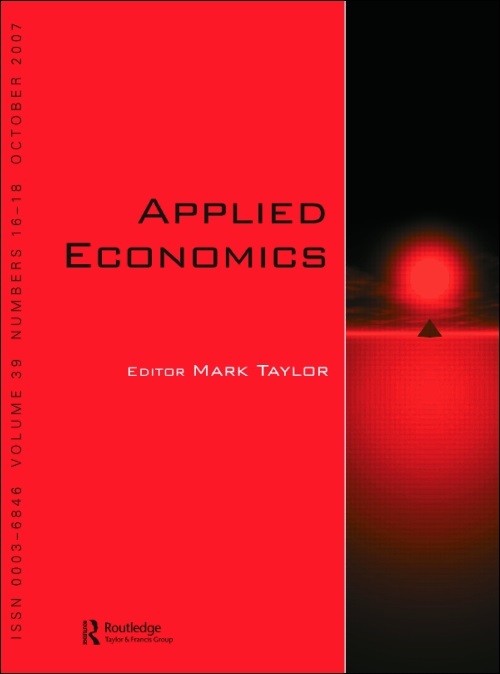
Foreign Bank Ownership and Income Inequality: Empirical Evidence
in: Applied Economics, No. 11, 2020
Abstract
Using country-level panel data over 1995–2013 on within-country income inequality and foreign bank presence, this paper establishes a positive relation between the two, running from higher foreign bank presence to income inequality. Given that foreign bank participation increased by 62% over the period 1995 to 2013, our baseline results imply a 5.8% increase in the Gini coefficient on average over this period, ceteris paribus. These results are robust to the inclusion of country and year fixed effects and to the use of restrictions on foreign bank entry in the host countries as an instrumental variable. We show that this positive effect is channelled through the lack of greenfield entry and the associated lower levels of competition.
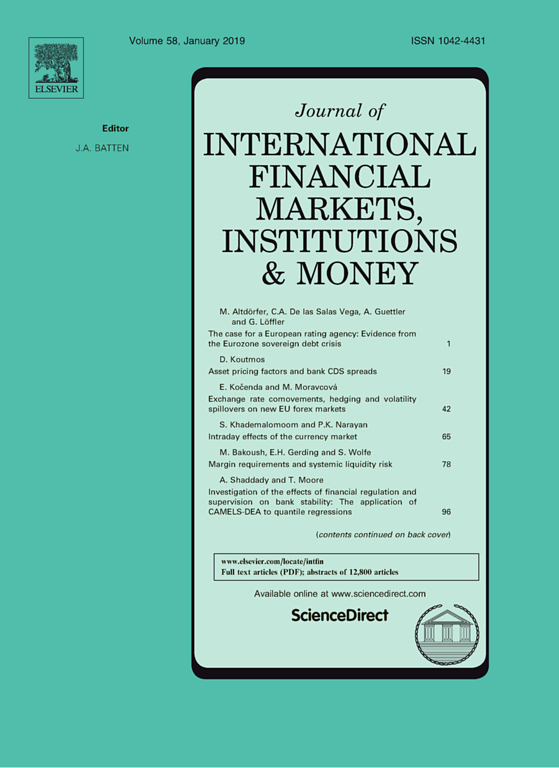
Comparing Financial Transparency between For-profit and Nonprofit Suppliers of Public Goods: Evidence from Microfinance
in: Journal of International Financial Markets, Institutions and Money, January 2020
Abstract
Previous research finds market financing is favored over relationship financing in environments of better governance, since the transaction costs to investors of vetting asymmetric information are thereby reduced. For industries supplying public goods, for-profits rely on market financing, while nonprofits rely on relationships with donors. This suggests that for-profits will be more inclined than nonprofits to improve financial transparency. We examine the impact of for-profit versus nonprofit status on the financial transparency of firms engaged with supplying public goods. There are relatively few industries that have large number of both for-profit and nonprofit firms across countries. However, the microfinance industry provides the opportunity of a large number of both for-profit and nonprofit firms in relatively equal numbers, across a wide array of countries. Consistent with our prediction, we find that financial transparency is positively associated with a for-profit status. Results will be of broad interest both to scholars interested in the roles of transparency and transaction costs on market versus relational financing; as well as to policy makers interested in the impact of for-profit on the supply of public goods, and on the microfinance industry in particular.
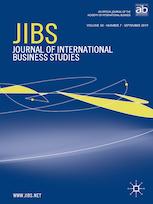
Foreign Ownership, Bank Information Environments, and the International Mobility of Corporate Governance
in: Journal of International Business Studies, No. 9, 2019
Abstract
This paper investigates how foreign ownership shapes bank information environments. Using a sample of listed banks from 60 countries over 1997–2012, we show that foreign ownership is significantly associated with greater (lower) informativeness (synchronicity) in bank stock prices. We also find that stock returns of foreign-owned banks reflect more information about future earnings. In addition, the positive association between price informativeness and foreign ownership is stronger for foreign-owned banks in countries with stronger governance, stronger banking supervision, and lower monitoring costs. Overall, our evidence suggests that foreign ownership reduces bank opacity by exporting governance, yielding important implications for regulators and governments.
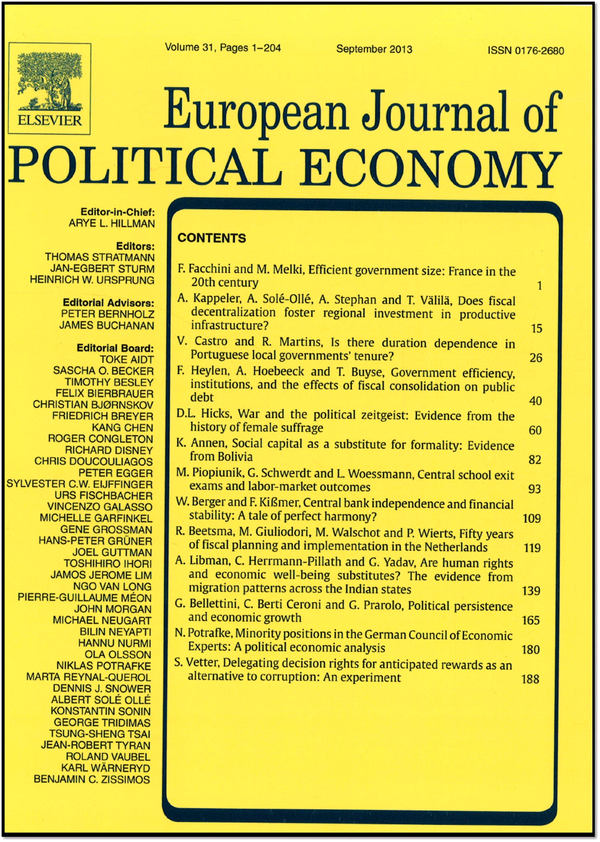
Delay Determinants of European Banking Union Implementation
in: European Journal of Political Economy, 2019
Abstract
Most countries in the European Union (EU) delay the transposition of European Commission (EC) directives, which aim at reforming banking supervision, resolution, and deposit insurance. We compile a systematic overview of these delays to investigate if they result from strategic considerations of governments conditional on the state of their financial, regulatory, and political systems. Transposition delays pertaining to the three Banking Union directives differ considerably across the 28 EU members. Bivariate regression analyses suggest that existing national bank regulation and supervision drive delays the most. Political factors are less relevant. These results are qualitatively insensitive to alternative estimation methods and lag structures. Multivariate analyses highlight that well-stocked deposit insurance schemes speed-up the implementation of capital requirements, banking systems with many banks are slower in implementing new bank rescue and resolution rules, and countries with a more intensive sovereign-bank nexus delay the harmonization of EU deposit insurance more.
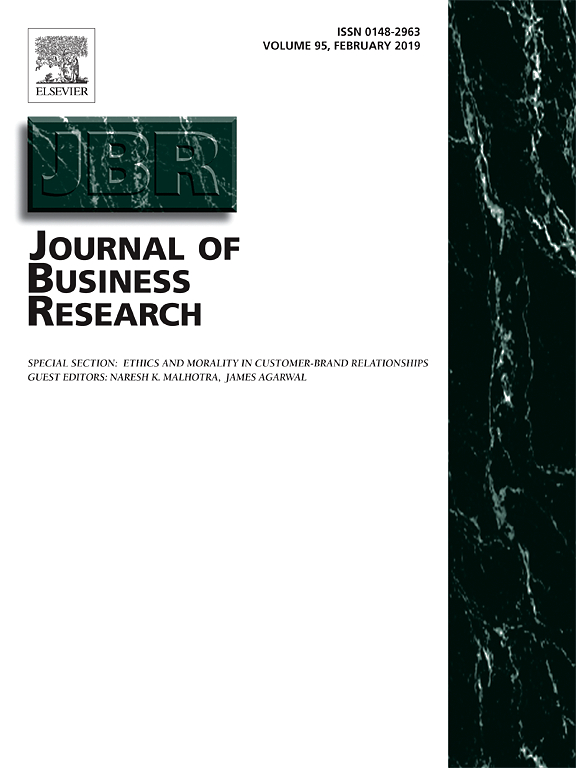
National Culture and Risk-taking: Evidence from the Insurance Industry
in: Journal of Business Research, April 2019
Abstract
The gravity of insurance within the financial sector is constantly increasing. Reasonably, after the events of the recent financial turmoil, the domain of research that examines the factors driving the risk-taking of this industry has been signified. The purpose of the present study is to investigate the interplay between national culture and risk of insurance firms. We quantify the cultural overtones, measuring national culture considering the dimensions outlined by the Hofstede model and risk-taking using the ‘Z-score’. In a sample consisting of 801 life and non-life insurance firms operating across 42 countries over the period 2007–2016, we find a strong and significant relationship among insurance firms' risk-taking and cultural characteristics, such as individualism, uncertainty avoidance and power distance. Results remain robust to a variety of firm and country-specific controls, alternative measures of risk, sample specifications and tests designed to alleviate endogeneity.
Working Papers
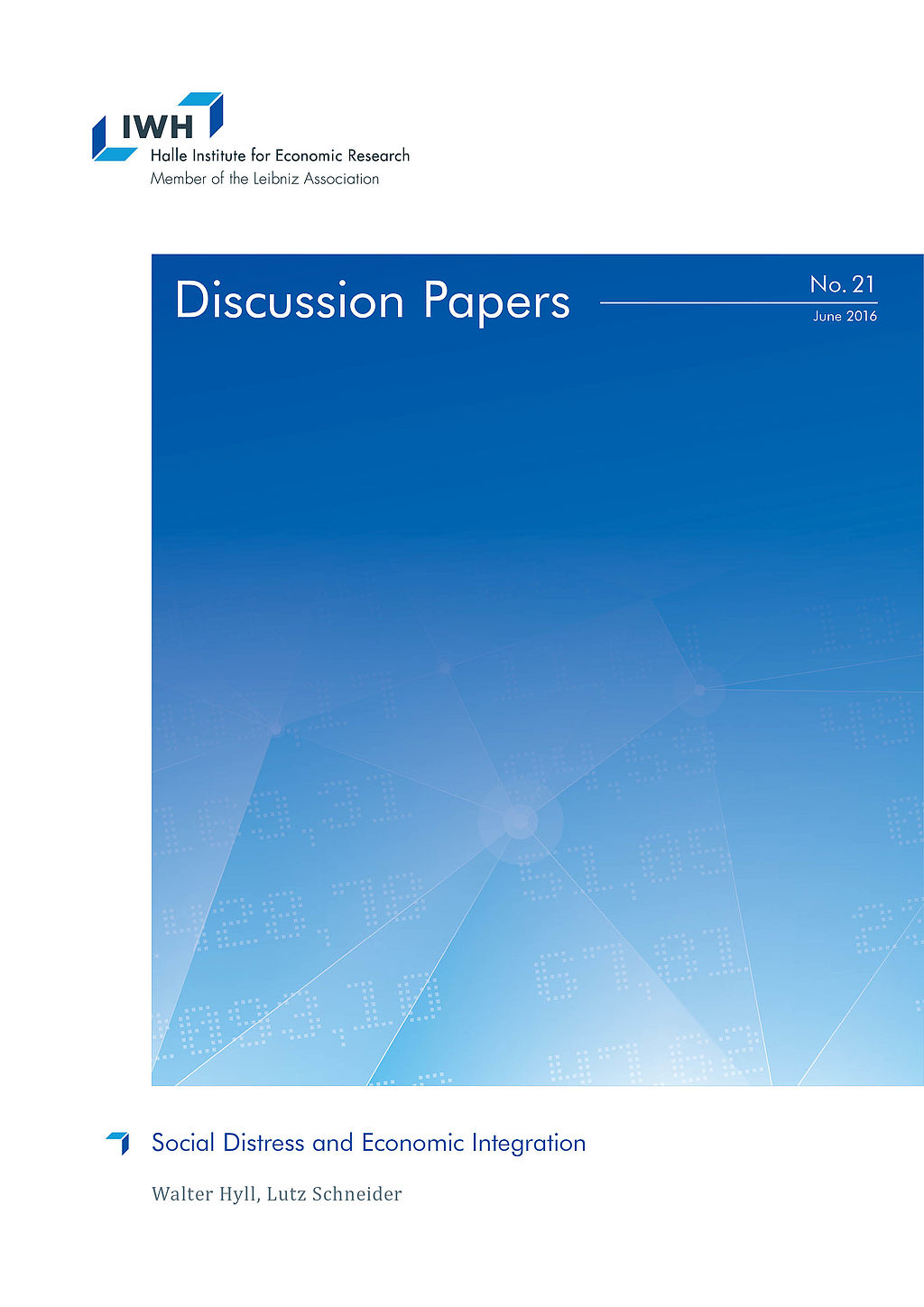
Friend or Foe? Crowdfunding Versus Credit when Banks are Stressed
in: IWH Discussion Papers, No. 8, 2015
Abstract
Does bank instability push borrowers to use crowdfunding as a source of external finance? We identify stressed banks and link them to a unique, manually constructed sample of 157 new ventures seeking equity crowdfunding. The sample comprises projects from all German equity crowdfunding platforms since 2011, which we compare with 200 ventures that do not use crowdfunding. Crowdfunding is significantly more likely for new ventures that interact with stressed banks. Innovative funding is thus particularly relevant when conventional financiers are facing crises. But crowdfunded ventures are generally also more opaque and risky than new ventures that do not use crowdfunding.
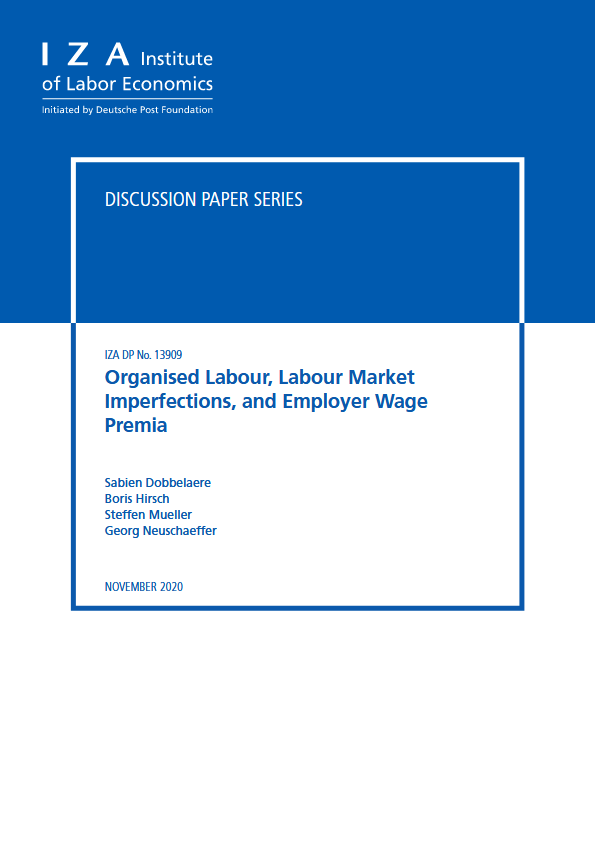
Explaining Regional Disparities in Housing Prices across German Districts
in: IZA Institute of Labor Economics, March 2022
Abstract
Over the last decade, German housing prices have increased unprecedentedly. Drawing on quality-adjusted housing price data at the district level, we document large and increasing regional disparities: growth rates were higher in 1) the largest seven cities, 2) districts located in the south, and 3) districts with higher initial price levels. Indications of price bubbles are concentrated in the largest cities and in the purchasing market. Prices seem to be driven by the demand side: increasing population density, higher shares of academically educated employees and increasing purchasing power explain our findings, while supply remained relatively constrained in the short term.














